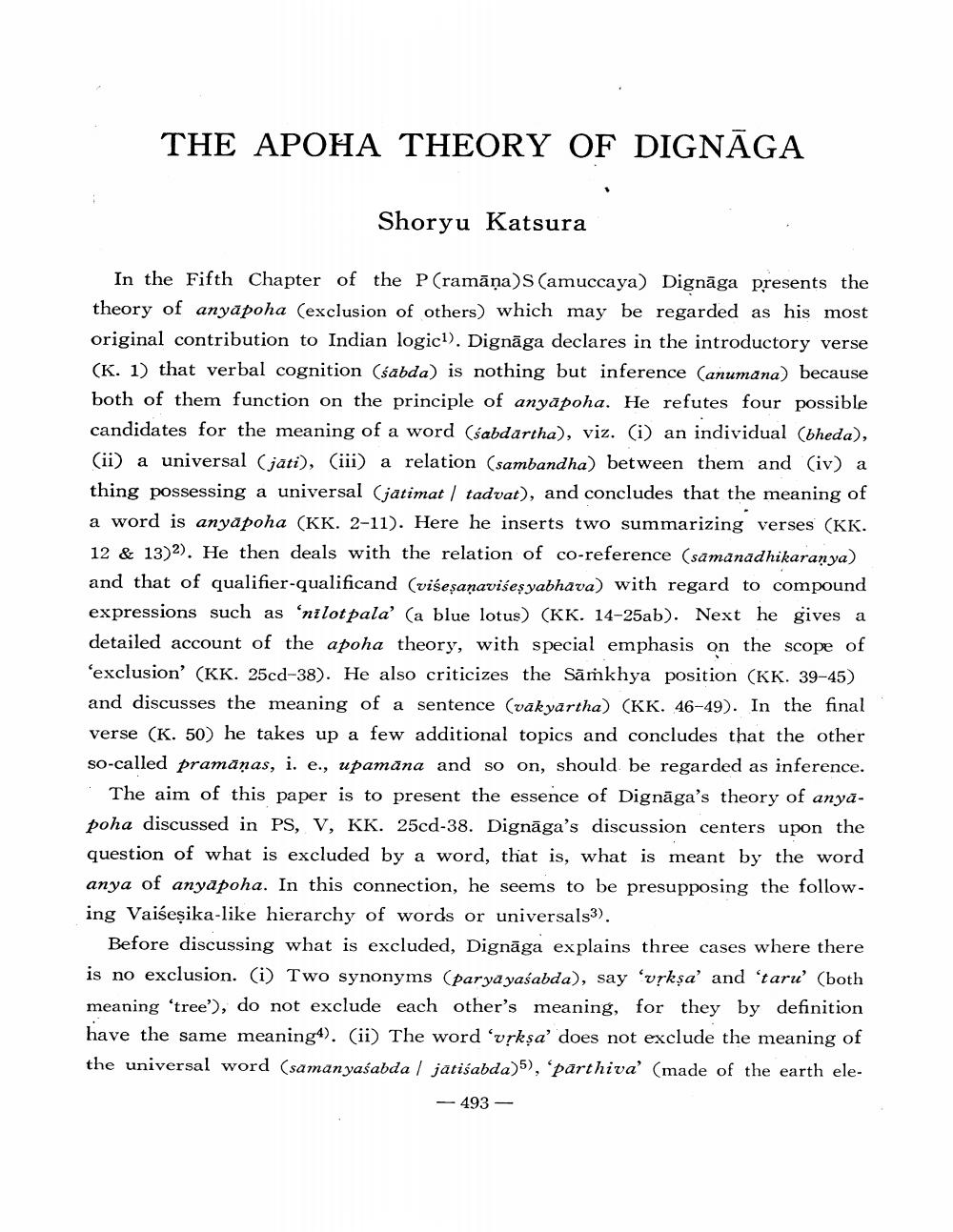Book Title: Apoha Theory Of Dignaga Author(s): Shoryu Katsura Publisher: Shoryu Katsura View full book textPage 1
________________ THE APOHA THEORY OF DIGNĀGA Shoryu Katsura In the Fifth Chapter of the P(ramāņa)(amuccaya) Dignāga presents the theory of anyapoha (exclusion of others) which may be regarded as his most original contribution to Indian logic!). Dignāga declares in the introductory verse (K. 1) that verbal cognition (śabda) is nothing but inference (anumana) because both of them function on the principle of anyāpoha. He refutes four possible candidates for the meaning of a word (sabdartha), viz. (i) an individual (bheda), (ii) a universal (jati), (iii) a relation (sambandha) between them and (iv) a thing possessing a universal (jatimat / tadvat), and concludes that the meaning of a word is anyapoha (KK. 2-11). Here he inserts two summarizing verses (KK. 12 & 13)2). He then deals with the relation of co-reference (samanadhikaranya) and that of qualifier-qualificand (višeșanavišeş yabhava) with regard to compound expressions such as ‘nılot pala' (a blue lotus) (KK. 14-25ab). Next he gives a detailed account of the apoha theory, with special emphasis on the scope of 'exclusion' (KK. 25cd-38). He also criticizes the Sāṁkhya position (KK. 39-45) and discusses the meaning of a sentence (vākyartha) (KK. 46-49). In the final verse (K. 50) he takes up a few additional topics and concludes that the other so-called pramāņas, i. e., upamāna and so on, should be regarded as inference. The aim of this paper is to present the essence of Dignāga's theory of anyapoha discussed in PS, V, KK. 25cd-38. Dignāga's discussion centers upon the question of what is excluded by a word, that is, what is meant by the word anya of anyapoha. In this connection, he seems to be presupposing the following Vaiśeşika-like hierarchy of words or universals3). Before discussing what is excluded, Dignāga explains three cases where there is no exclusion. (i) Two synonyms (parya yaśabda), say 'urksa' and 'taru' (both meaning 'tree'), do not exclude each other's meaning, for they by definition have the same meaning4). (ii) The word 'vrkşa' does not exclude the meaning of the universal word (saman yaśabda / jātisabda)5), 'parthiva' (made of the earth ele - 493Page Navigation
1 2 3 4 5
